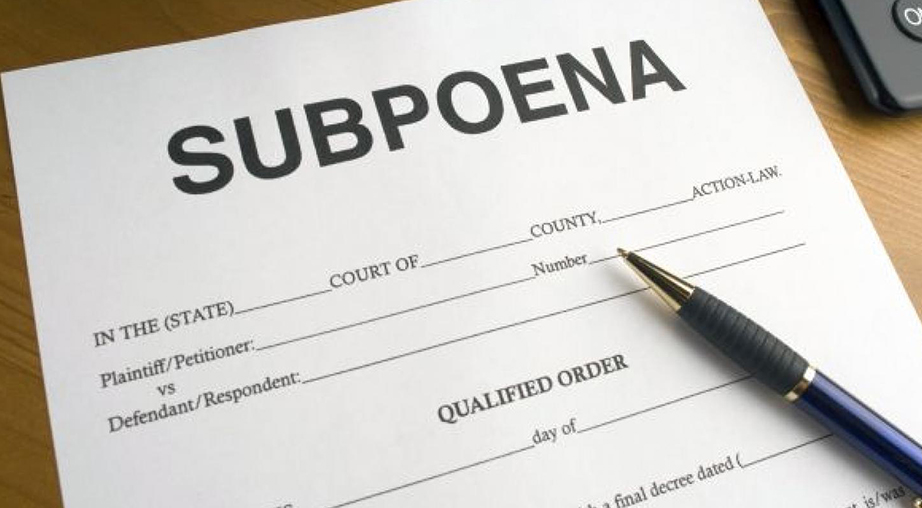If the other parent is lying about their income in a Massachusetts child support case, you can take legal steps to uncover the truth and correct the record. The court has tools to investigate suspected misreporting, especially when one parent is self-employed or hiding assets. Whether inflating expenses, underreporting income, or being vague, financial dishonesty can directly impact your child’s well-being, and the court takes that seriously.
Massachusetts law allows judges to impute income, audit financial records, and order discovery if one party believes the other isn’t being honest. If you suspect financial deception, you have to sit back and accept it; you can file a motion to compel disclosure, request documentation, or ask the court of family law to assign income based on lifestyle or past earnings.
According to the Massachusetts Child Support Guidelines, the court may attribute income to a parent who is found to be earning less than they could through voluntary unemployment or underemployment
How Do Massachusetts Courts Define Lying About Income?
Massachusetts courts define lying about income as intentionally hiding, underreporting, or misrepresenting earnings to lower a child support obligation. This can include failing to disclose cash income, inflating business expenses, working under the table, or claiming unemployment while actively earning. Courts pay close attention when a parent is self-employed or has income that fluctuates.
According to the Massachusetts Child Support Guidelines, judges have the authority to examine questionable financial disclosures. If dishonesty is found, the court can assign income based on past earnings, lifestyle, or earning potential. This process is called imputing income.

What Counts as Income Misrepresentation in a Child Support Case?
In a child support case, income misrepresentation happens when a parent fails to report all sources of income or provides misleading financial information. This can include underreporting self-employment earnings, working for cash “off the books,” hiding assets, or inflating business expenses. The court reviews records such as tax filings and the financial affidavit to determine if the numbers line up with the parent’s actual lifestyle and resources.
There’s a big difference between making a math error and intentionally trying to game the system. The Massachusetts Child Support Guidelines allow the court to take action if it finds unreported income, and any resulting support order is based on disclosures that the judge determines are accurate and complete.
What is Attributed or Imputed Income?
Imputed income and attributed income refer to what the court believes a parent should be earning, even if they claim to make less. When the numbers don’t add up, the court imputes income based on factors like education, employment history, job skills, and earning potential. This often happens in cases of voluntary underemployment or inconsistent financial disclosures.
Under the 2021 Massachusetts Child Support Guidelines, a parent is assigned income level that reflects their realistic ability to earn. If no reliable income information exists, the court may use a minimum wage presumption. The child support order is calculated accordingly, using the attributed amount rather than what was reported.
How Can You Prove the Other Parent is Lying About Income?
To prove the other parent is lying about income, you’ll need solid evidence that contradicts their financial disclosures. This can include pay stubs, bank records, social media posts showing employment or spending, periods of unemployment, business listings, or testimony from employers or clients. The goal is to show that the reported income does not match the parent’s actual earnings or lifestyle.
Massachusetts courts rely on documentation, not suspicion. You can request financial records through discovery, file a motion to compel more detailed disclosures, or ask the court to conduct a hearing. If enough evidence is presented, the judge can impute income and adjust the support order accordingly.
What Types of Evidence Can Be Used in Court
If you think the other parent is not being honest about their income, the court will need more than a hunch. Judges look for clear, documented proof that a parent’s financial reality does not match what they’ve claimed. When income reports seem off, the court starts looking at the bigger picture, including spending habits and financial activity.
Common evidence includes:
- Tax returns, including Schedule C for self-employment
Bank and credit card statements showing deposits or spending
Payment app histories from Venmo, PayPal, or Cash App
Business ledgers and invoices showing actual earnings
Social media posts showing unreported work or expensive purchases
Property ownership or rental records that suggest higher income
During financial discovery, your attorney may subpoena records, or the court might request a new affidavit or updated earnings report. If red flags appear, the court will evaluate documents carefully, and the parent’s lifestyle is reviewed to determine if their income should be adjusted.
Can the Court Order Discovery or Subpoenas?
Yes, the Probate & Family Court can authorize formal discovery during child support cases, especially when one party believes the other is hiding income. Discovery is the legal process of gathering financial information, and it can include document requests, written questions, and even depositions. If a parent refuses to be transparent, the court has tools to get answers.
Your attorney can request discovery and ask the court to issue subpoenas for things like bank records, employer pay histories, or business documents. Once granted, the other parentmust comply or risk penalties. This process helps ensure that the support order is based on accurate, verified income, not guesswork or vague claims.

What Legal Remedies Are Available if a Parent Lies?
If a parent lies about their income in a Massachusetts child support case, the court has several ways to respond. Judges can impute income, increase the support obligation, and even issue sanctions if the dishonesty is proven. The goal is to make sure child support reflects true earning ability, not manipulated numbers.
In more serious cases, the court may find the parent in contempt, especially if they’ve repeatedly failed to provide accurate disclosures or obey court orders. Penalties can include fines, payment of the other parent’s legal fees, or even jail time in extreme situations. When false information affects an existing order, you may also be able to file a motion to modify based on newly discovered facts.
Can You File for a Modification Based on Hidden Income?
Yes, if you discover that the other parent was not truthful about their income, you can file a Complaint for Modification with the court. This legal filing asks the court to change the child support amount based on new evidence showing that the original order was based on inaccurate or incomplete financial information.
Once the complaint is filed, the court may recalculate the child support obligation to reflect the actual income. In some cases, the court can issue a retroactive order, meaning the dishonest parent could owe back support dating to when the hidden income should have been reported. The new order reflects true income and ensures the child receives the support they were rightfully entitled to.
Is Lying About Income Grounds for Contempt?
Yes, if a parent misrepresents their income in a way that violates an existing support order or misleads the court, the court can hold in contempt. This typically applies when a parent has intentionally concealed or falsified information that affects the calculation or enforcement of child support.
If the false statements were made under oath, perjury may also be considered. The other parent can file an enforcement motion, asking the judge to review the misconduct. If the court finds the behavior was deliberate, the judge can impose penalties such as fines, sanctions, and payment of the other party’s attorney’s fees. In serious cases, contempt can even result in jail time.

How Does the DOR Handle Income Concealment?
The Massachusetts Department of Revenue (DOR) takes income concealment seriously and uses a variety of tools to uncover hidden earnings. When a parent is suspected of underreporting income or providing false information, the DOR can investigate using wage matching systems, tax return reviews, and employer verification.
If discrepancies are found, they may pursue enforcement actions, including modifying the support order or initiating collection through garnishments and refund intercepts.
The DOR can also refer cases for legal action, especially if a parent repeatedly fails to comply. While they don’t have the same authority as a judge to impute income, the DOR can gather evidence, request documentation, and recommend that the court take further steps to ensure the support order reflects the parent’s actual earnings.
Can the DOR Investigate Income or Employment?
Yes, the Massachusetts DOR can look into a parent’s income and job status if there’s a child support case open with them. The DOR reviews reports from employers, checks tax filings, and uses state wage databases to see what a parent is actually earning. Since employers are required to submit data, the agency gets reliable information that can help confirm whether the numbers match up.
This process is a little different from hiring a private attorney. When the DOR is involved, they manage income withholding, track payments, and step in if things don’t add up. Once a parent’s income is verified, the DOR can take steps to fix the issue or recommend that the court take a closer look. It’s one of the ways the system helps make sure child support orders are fair and based on real numbers.
Should You Report Suspicion to DOR or Your Lawyer?
Yes. If you suspect the other parent is hiding income, your first step should be to contact a family law attorney or reach out to the DOR Child Support Enforcement Division. Both can help you figure out what action to take, whether it’s filing a legal motion or asking the agency to review the case. A lawyer can guide you through court procedures, while the DOR can investigate based on the information you provide.
No matter who you go to, be ready to back up your concerns. Keep records, note dates, and gather anything that supports your claim—social media posts, payment screenshots, or lifestyle changes. When a complaint is submitted, the agency or your legal counsel will use those details to decide how to move forward. The stronger your documentation, the more likely it is that the situation will be taken seriously and properly investigated.
For more information, contact Michelle Murray to learn what may happen in a Massachusetts child support case when one parent lies about income.
FAQs About Hidden Income and Child Support in MA
What if I can’t prove they’re lying, but I suspect it?
Even without solid proof, the court can still take your concerns seriously. Judges may look at lifestyle clues, like expensive purchases or frequent travel, and compare them to what the parent claims to earn. They can also require both parties to submit sworn affidavits. If something feels off, the court may impute income based on overall behavior and financial patterns rather than just the numbers on paper.
Can cash jobs or under-the-table work be considered?
Yes, they can. The court understands that not all income flows through payroll. If a parent is doing work for cash or being paid off the books, the judge may assign income based on past jobs, skill level, and earning history. It is not only about what the parent reports, but also what they could reasonably be expected to earn.
Does imputed income affect how much I pay or receive?
Yes. When the court decides to impute income, the child support amount is calculated using that assigned figure instead of the reported one. Whether you are the paying or receiving parent, this can make a big difference in what the court orders. The goal is to make support fair and reflect each parent’s true ability to contribute.

Michelle Murray has devoted her practice exclusively to family law matters, focusing her efforts on assisting clients through divorce, custody, property division, child support, spousal support, and visitation issues throughout Worcester County.

